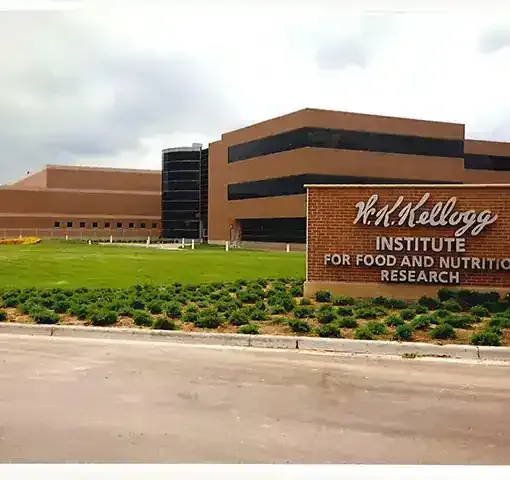The recent WK Kellogg acquisition negotiations have captured significant market attention, as shares of the cereal giant surged more than 50% amid reports of Ferrero’s plans to acquire it for approximately $3 billion. This potential chocolate maker acquisition marks a notable shift in the packaged foods consolidation efforts within the US cereal market. Historically renowned for its iconic breakfast cereals like Froot Loops and Frosted Flakes, WK Kellogg is poised for transformation under Ferrero’s ownership. As consumers increasingly gravitate towards healthier breakfast alternatives and private label products, this acquisition could strategically position Ferrero USA for robust expansion in the competitive market. Industry analysts are keenly observing how this deal could reshape consumer preferences and redefine breakfast choices in the United States.
The prospective purchase of WK Kellogg by Ferrero signals a noteworthy pivot in the landscape of breakfast foods and confectionery. With the chocolate manufacturer eyeing the cereal company, this transaction could be a pivotal moment for both brands, enhancing their presence in the evolving food sector. With increased competition and consumer shifts towards healthier options, this development reflects broader trends in the packaged goods sector. The integration of WK Kellogg’s beloved breakfast products with Ferrero’s innovative strategies may lead to a revitalization of the US breakfast market. Observers anticipate that this move not only marks a significant acquisition but also emphasizes the importance of adapting to consumer trends in a rapidly changing industry.
The Impact of the Ferrero WK Kellogg Acquisition on the Market
The impending acquisition of WK Kellogg by Ferrero represents a significant shift in the packaged foods industry, particularly within the segment of breakfast cereals. This acquisition, valued at approximately $3 billion, could potentially transform consumer preferences and brand strategies in the U.S. cereal market. Traditionally dominated by sugar-laden options, the cereal market has seen shifting consumer trends towards healthier alternatives, making this acquisition particularly timely. By integrating WK Kellogg’s popular brands like Froot Loops and Frosted Flakes, Ferrero could leverage its market presence to not only consolidate its portfolio but also innovate healthier offerings.
Furthermore, this acquisition could set the stage for further consolidation in the packaged foods sector, with Ferrero joining the ranks of industry giants expanding their reach. Recent years have seen a multitude of mergers and acquisitions aimed at capturing a larger share of health-conscious consumers. As inflation drives shoppers towards budget-friendly options and private label goods, Ferrero’s move to acquire WK Kellogg could signal an intention to adapt to these consumer habits, ensuring sustained market competitiveness.
Ferrero’s Strategic Expansion into the US Market
Ferrero’s plan to acquire WK Kellogg aligns with its broader strategy for expansion within the U.S. market, seeking to diversify its product offerings and strengthen its presence among American consumers. The company, well-known for its rich chocolate products, such as Ferrero Rocher and Kinder, is now aiming to step into a breakfast foods segment that has seen declining popularity among sugary cereals. By adding WK Kellogg’s legacy products to their portfolio, Ferrero could not only rejuvenate interest in these beloved brands but also introduce new innovations that cater to healthier eating habits.
Moreover, this acquisition underscores Ferrero’s commitment to growth within the competitive U.S. confectionery market. With a focus on developing new products designed specifically for American consumers, such as peanut-flavored Nutella, Ferrero is making strategic moves to integrate their confectionery expertise with WK Kellogg’s established breakfast offerings. This cross-pollination of product strategies not only enhances their market leverage but also presents opportunities for joint marketing initiatives that capitalize on consumer nostalgia and brand loyalty.
Consolidation Trends in the Packaged Foods Industry
The trend towards consolidation in the packaged foods industry has accelerated in recent years, influenced heavily by changing consumer preferences and economic pressures. The proposed acquisition of WK Kellogg by Ferrero is a prime example of how major players are seeking to streamline operations and expand their product lines in response to market dynamics. As consumer demand shifts away from traditional sugary cereals towards healthier, more diverse breakfast options, companies must adapt quickly to retain their market share.
This strategic consolidation not only allows companies to cut costs and enhance efficiency but also empowers them to expand their reach into new consumer demographics. By acquiring established brands like WK Kellogg, Ferrero can leverage their existing distribution networks and brand loyalty to drive profitability. Moreover, in a landscape marked by rising production costs and inflationary pressures, such mergers become essential for companies aiming to create resilient business models that cater to evolving consumer needs.
Shifts in Consumer Preferences for Breakfast Options
In recent years, there has been a notable shift in consumer preferences regarding breakfast options, significantly impacting the U.S. cereal market. With health consciousness on the rise, many Americans are moving away from sugary cereals towards options considered more nutritious. This paradigm shift presents both challenges and opportunities for established brands like WK Kellogg, as consumer demand increasingly favors organic, natural, and low-sugar products. The potential acquisition by Ferrero could serve as a catalyst for WK Kellogg to innovate its product lines and adapt to these changing preferences.
As consumers opt for alternatives such as oatmeal, yogurt, and smoothies, cereal producers are compelled to rethink their marketing strategies. This landscape opens up avenues for brands that can reinvent traditional offerings to align with consumer values surrounding health and wellness. Ferrero’s approach to integrating their business model with WK Kellogg could notably enhance their ability to produce healthier breakfast options that appeal to the modern consumer’s palate, thereby revitalizing the brand’s appeal in a saturated market.
The Historical Significance of WK Kellogg’s Brand
WK Kellogg’s brand has a storied history, rooted in American childhood and breakfast culture. Well-known for iconic products like Froot Loops and Frosted Flakes, the company’s legacy represents a significant part of the American culinary landscape. As part of Ferrero’s acquisition plans, it becomes crucial to recognize the historical significance of WK Kellogg’s brand and its enduring popularity among generations of consumers. This brand equity presents a unique opportunity for Ferrero to harness nostalgia while also guiding the legacy brand into a modern context.
Transitioning WK Kellogg under Ferrero’s ownership may involve balancing the traditional appeal of these beloved cereals with innovative marketing strategies that resonate with younger consumers. By tapping into the emotional connections that consumers have with these products, Ferrero can foster a sense of community and loyalty while expanding WK Kellogg’s offerings to include healthier and more varied breakfast options.
The Role of Innovation in Ferrero’s Growth Strategy
Innovation plays a pivotal role in Ferrero’s growth strategy, particularly as it seeks to establish a firmer foothold in the U.S. market through the acquisition of WK Kellogg. To remain relevant, companies in the packaged foods industry must continuously innovate, adapting their offerings to meet the changing tastes and preferences of consumers. With a focus on healthy and desirable breakfast options, Ferrero has the opportunity to infuse new life into iconic WK Kellogg products.
Leveraging its expertise in product development, Ferrero can explore cutting-edge flavors, healthier formulations, and new packaging solutions that resonate with contemporary consumers. Such innovations could include the introduction of whole grain varieties or protein-enriched cereals that cater to health-focused customers. By prioritizing R&D and integrating it into their acquisition strategy, Ferrero can ensure that it meets market demand while solidifying its position as a leader in both the chocolate and breakfast food sectors.
The Financial Implications of the Ferrero Acquisition
The financial implications of Ferrero’s acquisition of WK Kellogg are significant, especially considering the $3 billion deal that could reshape the landscape of the packaged foods industry. The immediate reaction from the market saw WK Kellogg’s shares soar over 50%, showcasing investor optimism regarding the merger’s potential benefits. This acquisition not only has the potential to enhance Ferrero’s market capitalization but also promises to streamline operations and drive cost efficiencies across both companies.
Furthermore, the acquisition signifies a strategic investment by Ferrero into a sector that remains a staple in American households. The commitment to invest in WK Kellogg’s legacy brands could yield long-term financial returns by revitalizing sales and expanding market presence in a competitive industry. Analyzing the financial performance post-acquisition will be critical, as it will inform stakeholders about the efficacy of this strategic move in achieving sustainable growth in the packaged foods market.
Navigating Challenges in the Packaged Foods Market
The packaged foods market faces numerous challenges, including fluctuating consumer preferences and economic pressures such as inflation. For Ferrero and WK Kellogg, the task ahead involves carefully navigating these obstacles while leveraging the acquisition to their advantage. Adapting to market trends that favor healthier products is paramount, especially as consumers increasingly prioritize nutrition and value. Ferrero’s strategic approach will need to address current market dynamics while promoting the strength of both brands.
In addition to product innovation, maintaining price competitiveness will be crucial in the fight against private label brands gaining traction in the market. As Ferrero integrates WK Kellogg’s operations, the challenge will lie in finding ways to deliver quality products at a price point that attracts consumers looking for value amid rising grocery costs. Successful navigation of these challenges will determine the effectiveness of the acquisition and its ability to yield sustained market leadership in the future.
The Future of WK Kellogg Under Ferrero’s Ownership
Looking ahead, the future of WK Kellogg under Ferrero’s ownership holds both promise and challenges. The acquisition could usher in a new era of innovation for iconic breakfast brands that have long been staples in American households. With access to Ferrero’s extensive resources and market expertise, there may be opportunities to expand WK Kellogg’s product lines to include options appealing to a wider demographic, particularly health-conscious consumers seeking better alternatives.
However, the success of this transition will largely depend on how effectively Ferrero manages the integration of WK Kellogg’s operations while respecting the legacy brand’s identity. Striking a balance between honoring the traditional values of WK Kellogg and embracing modern consumer trends will be critical to maintaining brand loyalty and driving future growth. As this dynamic unfolds, the packaged foods industry will be closely observing how this acquisition plays out and reshapes the competitive landscape.
Frequently Asked Questions
What is the Ferrero WK Kellogg acquisition about?
The Ferrero WK Kellogg acquisition refers to the anticipated $3 billion deal where Ferrero, the Italian chocolate maker, aims to acquire WK Kellogg, the company known for its iconic breakfast cereals like Froot Loops and Frosted Flakes. This acquisition is part of a broader trend of consolidation in the packaged foods industry.
How will the WK Kellogg acquisition by Ferrero impact the US cereal market?
The WK Kellogg acquisition by Ferrero is expected to significantly impact the US cereal market by merging chocolate and breakfast food categories under Ferrero’s brand. This strategic move could enhance product innovation and marketing efforts, aligning with shifting consumer preferences towards healthier breakfast options.
What benefits does the Ferrero acquisition bring to WK Kellogg?
The Ferrero acquisition presents several benefits to WK Kellogg, including increased investment for product development and marketing, potential leveraging of Ferrero’s distribution networks, and enhanced competitiveness in the evolving US cereal market against healthier and private label alternatives.
How does the WK Kellogg acquisition relate to packaged foods consolidation?
The WK Kellogg acquisition is a significant example of packaged foods consolidation, highlighting the trend where large companies like Ferrero seek to diversify their portfolios by acquiring established brands in the cereal sector, thus responding to evolving consumer demands and market challenges.
What is the current market situation for WK Kellogg before the acquisition?
Before the acquisition, WK Kellogg has shown a 2% decline in shares this year, reflecting challenges in the US cereal market, including consumer shifts towards healthier options and private label brands. The acquisition by Ferrero aims to revitalize its market presence amid these trends.
Why did WK Kellogg shares rise following news of the Ferrero acquisition?
WK Kellogg shares soared more than 50% following news of the Ferrero acquisition due to investor optimism surrounding the potential benefits of this deal, which is expected to enhance WK Kellogg’s market value and foster growth within the competitive landscape of the US cereal market.
| Key Points |
|---|
| WK Kellogg shares surged over 50% due to a potential $3 billion acquisition by Ferrero. |
| Ferrero, known for hazelnut chocolates, may complete the deal within the week. |
| WK Kellogg, famous for cereals like Froot Loops and Frosted Flakes, became a standalone company in 2023. |
| Kellanova, a separate company, now includes snack brands like Pringles and Cheez-It. |
| Shares of WK Kellogg decreased approximately 2% this year, with a market cap of $1.5 billion. |
| The acquisition indicates a trend of consolidation in the packaged foods industry, responding to changing consumer preferences. |
| Ferrero aims to strengthen its position in the U.S. market by introducing new products targeting American consumers. |
Summary
The WK Kellogg acquisition by Ferrero marks a significant move in the packaged foods industry, showcasing the increasing trend of consolidation among established food brands. With WK Kellogg’s iconic cereals and Ferrero’s renowned chocolate products, this potential deal could reshape market dynamics as consumer preferences evolve towards healthier options and private-label brands. As Ferrero seeks to broaden its reach in the U.S., this acquisition highlights the ongoing transformation in the breakfast and snack food segments as they adapt to modern consumption trends.



